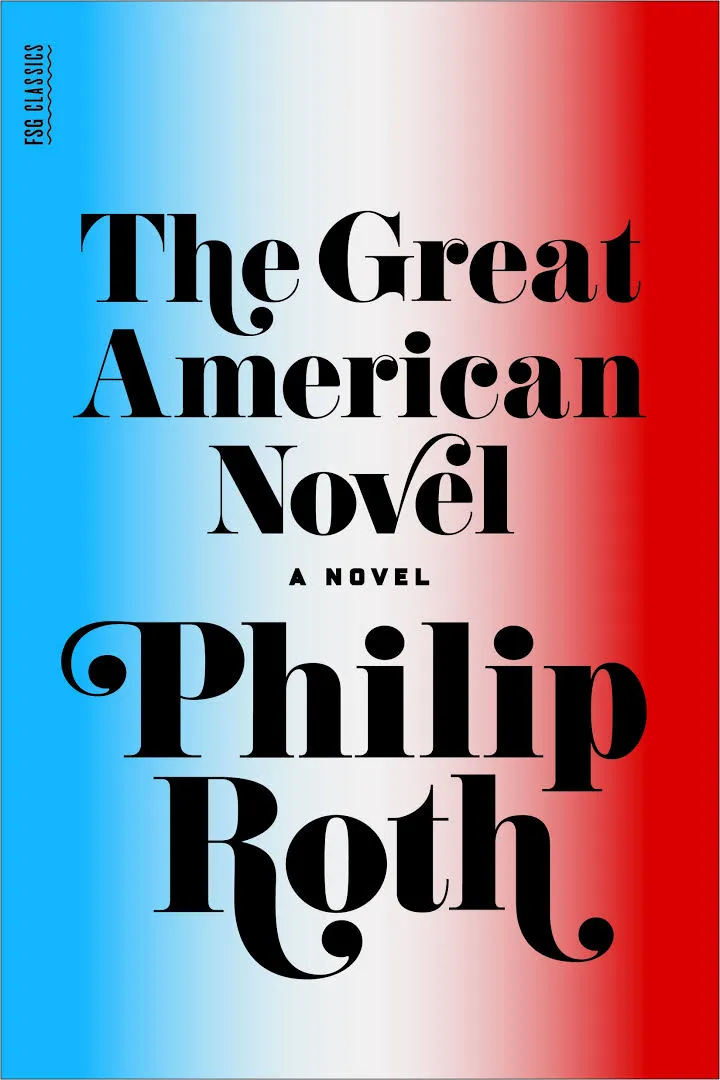
Posted on 07/07/2025 7:33:00 AM PDT by MtnClimber

Not to disappoint Philip Roth, but the fact that you title your book, The Great American Novel, does not make it a great American novel. My definition of Great American Novel is pretty straightforward: a first rate fiction, by an American, that tells us something large and expansive about the American experience. One other condition—it has to be readable.
A caveat upfront for the sensitive: seven of the ten novels listed below use the word “nigger,” not the infantile “n-word,” but the actual word itself. For the last many years, we have collectively refrained from using “nigger,” even in an explanatory context, as a form of dhimmitude to our woke overlords. By censoring books that use the word, we deny blacks their central role in the American experience. Time to get off our knees.
Here goes, starting from 10. Feel free to tell me what I got right and what I got wrong.
10—No Country for Old Men

Although many critics think Cormac McCarthy’s Blood Meridian the more likely candidate for Great American novel, I thought it too dark and cynical, not to mention bloody, to qualify. McCarthy’s No Country for Old Men has more heart. Those who have seen the Academy Award-winning film, know the book. The Coen brothers adapted the 2005 novel almost word for word. The book is not exactly a stroll in the park, but it gives the reader someone to root for.
9—Gone With The Wind
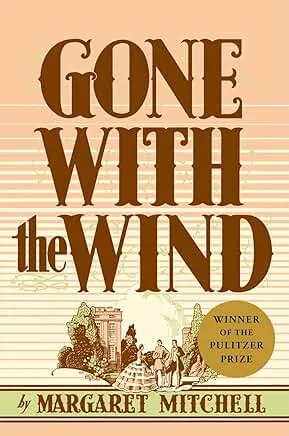
A huge bestseller when published in 1936. Margaret Mitchell’s Gone With the Wind has never fallen out of popularity. This sprawling, arguably feminist, epic of the Civil War-era South was ranked second only to the Bible in popularity as late as 2014. Readers have gone underground in the woke era, but the tale is too powerful to suppress. As the ever hopeful Scarlett reminds us at the end of the book and movie, “After all, tomorrow is another day.”
8—Grapes of Wrath
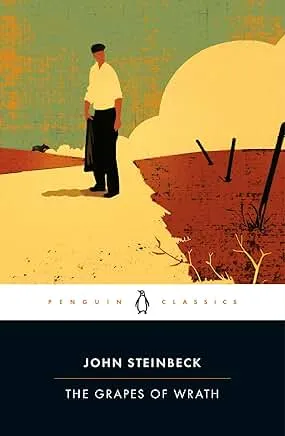
While hitchhiking one January long ago through the pre-homogenized South, I caught a ride out of New Orleans with some Mexican migrants of dubious legality. Soon after, they stopped for three runaway Texas girls who joined me in the back of the flatbed. Thinking I was having too good a time, the driver insisted we trade places. Later that might, while I was driving, a back tire fell completely off, and the spares all bounced out of the truck. After about two hours searching for the spares and replacing the missing tire, we warmed up around a huge bonfire. Said one of the girls to no one in particular, “Kiss my ass if this ain’t the Grapes of Wrath,” That’s how universal was the truth that Steinbeck captured in his 1939 novel, and thirty-some years later it still rang true even to teenage runaways.
7—Confessions of Nat Turner

William Styron deservedly won the 1968 Pulitzer Prize for this sympathetic, fictional recreation of the confessions of the real Nat Turner, the man who led a bloody slave insurrection in 1831 Virginia. No sooner did Styron win the Pulitzer, however, than critics countered with “William Styron's Nat Turner: Ten Black Writers Respond. The arguments boiled down to—how dare a white writer try to imagine how a black slave might have thought. The book has been largely memory holed ever since.
6—Absalom, Absalom

Although much of William Faulkner’s opus is unreadable or nearly so, Faulkner’s 1936 novel, Absalom, Absalom!, is not. It chronciles the hair-rising tale of an up-from- nothing plantation owner in Civil War-era Mississippi. Imagine a sweaty Gone With the Wind without a hint of glamor.
5—The Bonfire of the Vanities
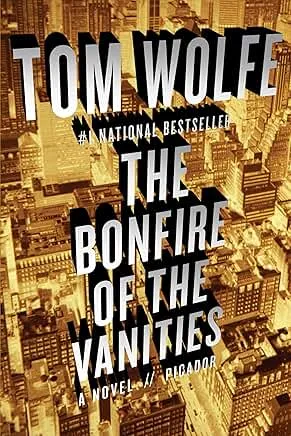
Distressed by the failure of contemporary novelists to capture the great carnival of American life, “Right Stuff” journalist Tom Wolfe decided to fill the void. He did so masterfully in this prophetic epic of life gone haywire in 1980s New York City. Although comic in tone, The Bonfire of the Vanities captures the emerging racial dynamic that would paralyze urban America for years to come. Skip the movie version, the worst botch of a good book in memory.
4—Moby Dick
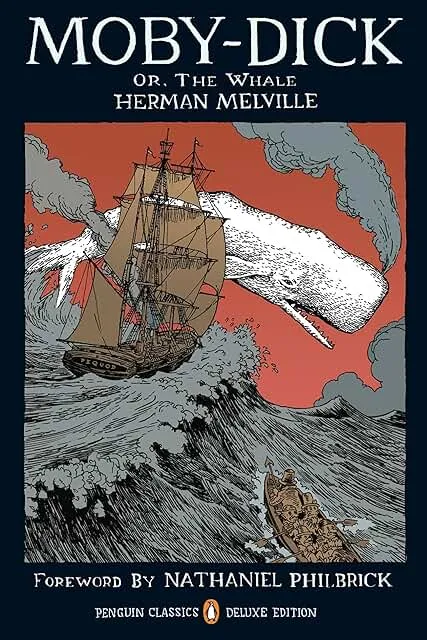
For years, I quietly concealed the darkest possible stain on the soul of any American studies Ph.D.—I had never read Moby Dick. A few years ago, as a form of bucket list atonement, I dove into this 1851 classic. I speed read through the whale particulars but otherwise a worthy read. What no one had told me was the book was comic. Maybe, I thought, no one had actually ever read it. To put the plot in contemporary context, imagine Donald Trump as the white whale and the Democratic leadership as Captain Ahab. Spoiler alert: the whale wins.
3—American Pastoral
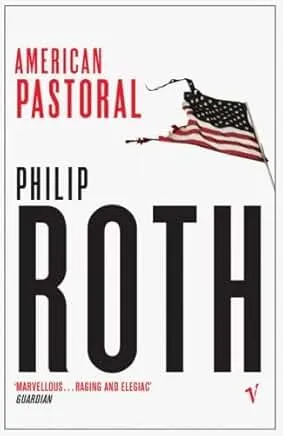
Set In Newark, NJ—the setting for my 2023 non-fiction book Untenable—the 1997 American Pastoral is the late Philip Roth’s best candidate for Great American novel. I confess to being partial in that we tell much the same story, namely how the political and racial upheavals of the 1960s derailed the American dream. Roth would never admit it, but his Newark experience turned him, like multiple thousands of us, conservative.
2—Huckleberry Finn

I was halfway through Ron Chernow’s newest blockbuster Mark Twain when I decided to call it quits. Writing through the George Floyd era, the skittish Chernow was exactly the wrong biographer for the job. Instead of letting Huck and Jim float down the Mississippi, Chernow continually stops the voyage to dissect their understanding of race and class. For the record, Ron, calling a “slave” an “enslaved person” adds nothing to the conversation but syllables. Twain was a great observer of human nature, but he was first and foremost a humorist. By the way, gas in Hannibal two weeks ago was $2.49 a gallon. I recommend the Becky Thatcher diner. To the generations coming up forbidden to read Huckleberry Finn, don’t expect to see Becky working the register.
1—Lonesome Dove

When you are sad to see the book end after 800 or so pages, you know you have read one hell of book. Larry McMurtry’s 1985 classic has it all: great chacters, epic setting, brilliant diaolgue, high drama, ample humor, and a little romance. Unlike many rcent westerns, it resepects the characters, their vision, and the country that gave them free play. The mini-series is excellent too.
It’s good to see freepers who don’t read past headlines actually are familiar with books
All sound suggestions here
I think I’ve read or perused all these
Roth is to me overrated and kind of pop lit
Nat Turner was a psycho butcher elevated by guilty stupid white people to Christ Floyd status
I’ll pass but decent black achievers never get elevated as such sadly
Instead fakirs and liars get sainthood
I lived four years in Faulkner land and knew two of his nephews well
He’s hard reading but his work stays in your head
Which u prefer is just taste
Absalom is gritty
Hemingway deserves something
I also like the early historical romantic writers some mentioned here
Pop lit
I think Hemmingway was not mentioned in the article because most of his novels were set in Africa, Europe or the Caribbean. The article was about “Americana” novels which excludes many of the good suggestions about science fiction or foreign settings. It is interesting hearing about all of the suggestions anyway.
There are some people on this site who hate the South and the Confederacy so much that they also think that Nat Turner is a hero. The irony is that if these same people were Nat's neighbors in 1831, their hero and his followers would have chopped them to bits too.
I lived four years in Faulkner land and knew two of his nephews well
Did they share any interesting anecdotes about their uncle? He was famous for his sharp tongue, starting with when he quit his job as a local postmaster, saying “I will be damned if I propose to be at the beck and call of every itinerant scoundrel who has two cents to invest in a postage stamp", to the various people in Hollywood that he alienated because he resented doing hackwork for second-rate movies to pay the bills.
I found Faulkner tedious to read and gave up. But then I find many fiction writers tedious. I wouldn’t read a Henry James story if you put a gun to my head.
My taste in American fiction ran more like:
Ambrose Bierce
Flannery O’Connor
Edgar Allen Poe
Ray Bradbury
HP Lovecraft
Zane Grey
“It’s good to see freepers who don’t read past headlines actually are familiar with books”
That one amused me.
“Although an avid reader I too have attempted and failed Moby Dick three times. Sorry, it’s boring to me!!”
Short version: The whale wins.
“My favorite book of all time is Catch 22.”
That’s a great book. So is the 1970 movie. Sly, dark humor.
Heller had been a WW2 B-25 bombardier the same as Yossarian. Someone, maybe it was Heller’s son, figured out that all of his characters are based on his fellow aviators. There’s a good story about that somewhere online but I have no idea where I ran across it.
Never read GWTW either. Although if the movie is anything to go by, Scarlett O’Hara is one of the greatest female characters ever.
No Zane Grey? Jack London? Laura Ingalls? Thomas Pynchon? Hemingway? Ayn Rand? Dr. Seuss?
Yes Zane Grey
If ray davies of the kinks wrote novels about England instead of songs
You feel like you’re really there in the late 1800s west with Zane
Clumsy analogy I know but Davies puts u there in song that same way
Mostly the drinking and staying up late in Rowan oak Writing
A nice place
He was a known night writer
I’ve made out under the cedars that line the drive
It’s close to campus
and the 20 acre govt pot field
Rusty and I think Buddy
Great nephews
They drove Saabs which was cool in late 70s
I should have read more in article
NOVEL, n. A short story padded. A species of composition bearing the same relation to literature that the panorama bears to art. As it is too long to be read at a sitting the impressions made by its successive parts are successively effaced, as in the panorama. Unity, totality of effect, is impossible; for besides the few pages last read all that is carried in mind is the mere plot of what has gone before. ….The art of writing novels, such as it was, is long dead everywhere except in Russia, where it is new. Peace to its ashes—some of which have a large sale.
- Ambrose Bierce
(My compliments to your Am. fiction list)
Back in the ‘70s I bought a copy of “The Collected Writings Of Ambrose Bierce”.
Everything he ever wrote.
Occurrence At Owl Creek Bridge is of course his masterpiece, but much of his Civil War writing is excellent; Chickamauga being another one. Bierce was in the war and his stories had a undertone of sadness about them.
That book had an introduction by Clifton Fadimon, who was himself an interesting character:
https://www.college.columbia.edu/cct_archive/sep99/40a.html
“Jack London, Thomas Pynchon”
Gravity’s Rainbow held my rapt attention the first time that I read it. I think it’s probably still an excellent book but when I’ve tried reading it again my attention wanders. I’m pretty sure it’s not the book’s fault.
I like Bierce a lot, especially the comic writing such as “Negligible Tales” and “The Parenticide Club”.
Disclaimer: Opinions posted on Free Republic are those of the individual posters and do not necessarily represent the opinion of Free Republic or its management. All materials posted herein are protected by copyright law and the exemption for fair use of copyrighted works.